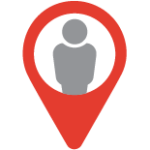Build meaningful and inclusive family engagement into community decision-making about programs and services.
2.2.1 Identify parent or family groups that exist within the community, and seek feedback on their needs and suggestions for increasing family representation in community decision-making about programs and services.


2.2.2 Respond to the cultural, ethnic, racial, language, and socioeconomic characteristics and preferences of families to create equitable family engagement opportunities at the community level.


2.2.3 Include family representatives from the local community on coalitions and/or advisory councils, and as program evaluators, co-trainers of pre-service or in-service training sessions, mentors for other families and professionals, grant and application reviewers, and participants in needs assessment processes.


KDHE, KU-CPPR, and the Children’s Cabinet have developed and are implementing a family engagement strategy guide to increase and align opportunities. The Family Advisory Council, led by KDHE, and the Family Leadership Team (comprised of family leaders and representatives from state agencies and community-based organizations), are expanding family leadership opportunities as well. The Family Leadership team added new members in 2022 including Kansas Children’s Service League, Kansas Head Start Association, and Families Together. Additionally, the Kansas Family First Family Council, an advisory board of Kansans with experience in the child welfare system and/or prevention services as a caregiver or as a youth, will contribute to statewide decision-making.
Community partners, including the Kansas Children’s Service League, host parent cafes and other family engagement initiatives such as the annual Parent Leadership Conference (November 2022). PDG Quality Subgrants are also supporting several local family engagement efforts including community awareness events and collaborative leadership teams that include family members.
There are several ongoing efforts that recognize the critical importance of ensuring family voice throughout the early childhood system, including inviting family members to participate in grant review committees through the KSCommonApp and partnering with individuals who have lived experience (IRIS Cultivation Cohort, Early Childhood Recommendations Panel and Thriving Families). Additionally, Community-Based Child Abuse Prevention (CBCAP) funding now requires applicants to address racial equity in programs and services.
Ongoing efforts to ensure accessibility for all families include making 1-800-CHILDREN available in over 200 languages and ASQ screening available in families’ preferred languages.
The story collection project, known as Our Tomorrows, uses a complexity-based tool called SenseMaker to capture narratives directly from Kansans to learn about how their needs are changing, how service providers are responding, and the general wellbeing of children and families. A unique feature of this approach is that the storyteller gets to interpret their own experience. The lived experiences shared through the Our Tomorrows StoryBank support the findings that Kansas families faced increases in mental health issues, child care issues, and problems accessing housing in 2021.
